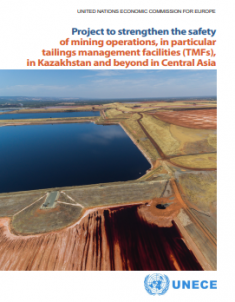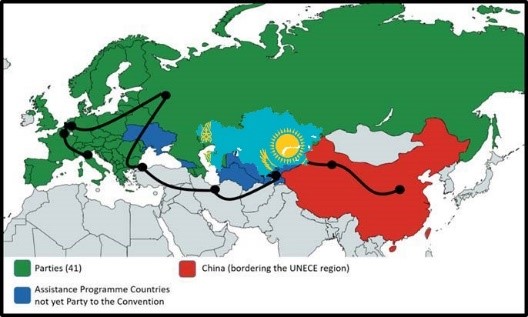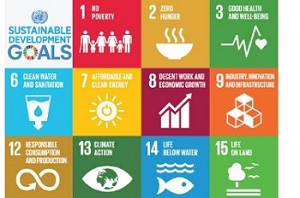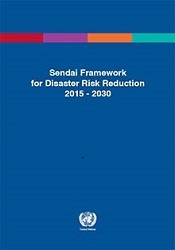Introduction

During the 2-year period December 2017 - December 2019, UNECE is implementing the Pilot project to strengthen the safety of mining operations, in particular tailings management facilities (TMFs), in Kazakhstan and beyond in Central Asia, thanks to financial support from the Swiss Federal Office for the Environment. The Project is carried out under the auspices of the UNECE Convention on the Transboundary Effects of Industrial Accidents (Industrial Accidents Convention).
Leaflet on the pilot project to strengthen the safety of mining operations, in particular TMFs, in Kazakhstan and beyond in Central Asia (English, Russian)
The Project will build on UNECE’s experience in the area of tailings safety, including:
- Activities of the UNECE Joint Expert Group on Water and Industrial Accidents (under the Industrial Accidents Convention and the Convention on the Protection and Use of Transboundary Watercourses and International Lakes (Water Convention))
- UNECE Safety guidelines and good industry practices for tailings management facilities (English, Russian)
- Project on Improving the Safety of Tailings Management Facilities in the Caucasian Region, Project on Improving the Safety of Industrial Tailings Management Facilities, based on the example of Ukrainian Facilities, and Project on Raising Knowledge among Students and Teachers on Tailings Safety and its Legislative Review in Ukraine, implemented under the leadership of the German Environment Agency under the workplan of the UNECE Industrial Accidents Convention.
UNECE is working in close cooperation with the relevant national authorities of Kazakhstan and in partnership with other relevant international and regional organizations and NGOs in the Project’s implementation.
Project Objectives
The general objective of the project is to strengthen the safety of mining operations, in particular TMFs, in Kazakhstan and beyond in Central Asia. In particular, the project aims to achieve the following:
- Enhance the expert and administrative capacity of Kazakhstan to reduce water-related risks by improving the management of TMFs, including with regard to control measures to prevent the release and ensure the environmentally sound management of mercury
- Improve institutional coordination among the respective national authorities regarding TMF safety and industrial accident prevention, preparedness and response
- Support Kazakh competent authorities in identifying and rating TMFs with regard to the hazard they pose for human health and the environment, with a focus on TMFs likely to cause transboundary pollution
- Support Kazakh competent authorities and operators in improving the safety of TMFs through identifying short-, medium- and long-term measures to address safety deficiencies in TMFs
- Strengthen the implementation of the UNECE Industrial Accidents and Water Conventions to enhance water management and to reduce related risks
- Strengthen countries’ knowledge about international Conventions in the field of chemicals and waste management, including on the relevance of ratification and implementation of those Conventions by Kazakhstan for an improved management of mining tailings, and on the relevant guidance materials
- Share experiences and lessons learned on TMF safety, particularly with regard to preventing the release and improving the environmentally sound management of mercury, with the other Central Asia countries.
Project Beneficiaries
The main beneficiary of the project is Kazakhstan and its competent authorities and operators. The project will be implemented in close cooperation with the three national competent authorities for the UNECE Industrial Accidents Convention nominated by Kazakhstan:
- Ministry of Investment and Development and its Committee for Industrial Development and Industrial Safety
- Ministry of Internal Affairs and its Committee for Emergency Situations
- Ministry of Energy and its Committees of subsoil use and of environmental regulations and control
The implementation of the Project will support Kazakhstan in implementing the recommendations arising from the Environmental Performance Review (EPR) for Kazakhstan, in particular to develop a programme for the management of existing mining tailings (recommendation 9.4, 1st EPR, 2000, and 2nd EPR, 2008).
Other relevant national and local authorities, industry, academia and other stakeholders will also be involved in the project and benefit from its activities.
The other Central Asian countries, i.e. Kyrgyzstan, Tajikistan, Turkmenistan and Uzbekistan, will also benefit by participating in specific activities, in particular the subregional workshop at the end of the project.
Project Activities
- National inception workshop in Astana, Kazakhstan (7-8 November 2018), leading to the establishment of a national inter-ministerial coordination mechanism on water management and TMF safety
- Preparation of an inventory and a hazard map for TMFs in Kazakhstan (ENG, RUS), including those TMFs that could cause transboundary water pollution
- TMF on-site training in Kokshetau, Kazakhstan (11-13 June 2019) combined with practical training session, resulting in the development of specific short-, medium- and long-term measures to address safety deficiencies in the TMF
- Subregional workshop on strengthening mine tailings safety in Central Asia (Almaty, Kazakhstan, 20-21 November 2019) to present and disseminate the project results, share lessons learned and exchange experiences, with the participation of other countries from Central Asia; the event was preceded by a Consultation for Central Asia on a draft mine tailings standard (Almaty, 18-19 November 2019), co-hosted by the Global Tailings Review and the industrial Convention Secretariat
Project Results
The following results are expected to be achieved:
- Enhanced levels of TMFs safety and the sound management of chemicals in Kazakhstan
- Improved institutional and administrative structures and established/enhanced cooperation mechanisms between authorities at the national and local levels, and between authorities, industry and the public in Kazakhstan for TMFs, conducive to the ratification and implementation of international conventions relevant in this area, in particular the UNECE Industrial Accidents Convention and the Minamata Convention on Mercury.
- Improved transboundary cooperation between the countries in Central Asia related to the prevention of accidental water pollution, the reduction of NATECH risks and the strengthening of TMF safety, preparedness and response.
Why is the project needed?
Kazakhstan, as other Central Asian countries, relies heavily on economic activities that produce, process or use hazardous substances in large quantities, which encompass the extraction and processing of minerals and metals, such as gold, mercury and uranium. Numerous TMFs store large amounts of mining waste.
The main risks related to TMFs in Kazakhstan are:
- Abandoned, improperly handled or orphaned TMFs, storing enormous quantities of hazardous substances
- Release of mercury or other heavy metals and hazardous substances, leading to soil pollution due to the formation of acid mine drainage
- Groundwater contamination and ecosystem damage caused by the degradation of tailings
- Accidental water pollution, due to the leakage or failure of TMFs, affecting drinking water quality and quantity, and leading to severe transboundary impacts
These risks are being aggravated due to the increase in the frequency and intensity of extreme weather events due to climate change. The risks of natural hazard triggering technological disasters (NATECH) in the form of industrial accidents on tailing facilities are thus prevalent.
Improving the safety of the TMFs and strengthening the prevention of water pollution are crucial for Kazakhstan, in the light of major infrastructure initiatives such as the Belt and Road Initiative and future envisaged developments, including in the mining sector.
Linkages with the Belt and Road Initiative and the 2030 Agenda for Sustainable Development
 The project will aim to reduce the risks by Kazakhstan and other Central Asian countries participating in the Belt and Road Initiative (BRI). The UNECE Safety Guidelines and Good Practices for TMFs and the related TMF methodology will help to identify hot spots in the régions and subsequently improve the management of these facilities. The lessons learned and shared will also improve the design, construction, and management of TMFs in the future, streamline cooperation and increase disaster preparedness, reducing risk to all BRI participating countries. BRI would pass through at least 16 UNECE countries that are Parties to the Industrial Accidents Convention or beneficiaries of the Assistance Programme, including the countries in Central Asia.
The project will aim to reduce the risks by Kazakhstan and other Central Asian countries participating in the Belt and Road Initiative (BRI). The UNECE Safety Guidelines and Good Practices for TMFs and the related TMF methodology will help to identify hot spots in the régions and subsequently improve the management of these facilities. The lessons learned and shared will also improve the design, construction, and management of TMFs in the future, streamline cooperation and increase disaster preparedness, reducing risk to all BRI participating countries. BRI would pass through at least 16 UNECE countries that are Parties to the Industrial Accidents Convention or beneficiaries of the Assistance Programme, including the countries in Central Asia.
 The project will contribute to implementing the 2030 Agenda for Sustainable Development and achieving the Sustainable Development Goals (SDGs), notably SDG-6/target 6.3: to improve water quality by 2030, by minimizing the release of hazardous chemicals and materials.
The project will contribute to implementing the 2030 Agenda for Sustainable Development and achieving the Sustainable Development Goals (SDGs), notably SDG-6/target 6.3: to improve water quality by 2030, by minimizing the release of hazardous chemicals and materials.

Furthermore, the implementation of this project will contribute to achieving the objectives and four priorities of the Sendai Framework for Disaster Risk Reduction for 2015-2030, namely to
1) enhance the understanding of disaster risk,
2) strengthen disaster risk governance,
3) invest in disaster risk reduction for resilience and
4) enhance disaster preparedness.